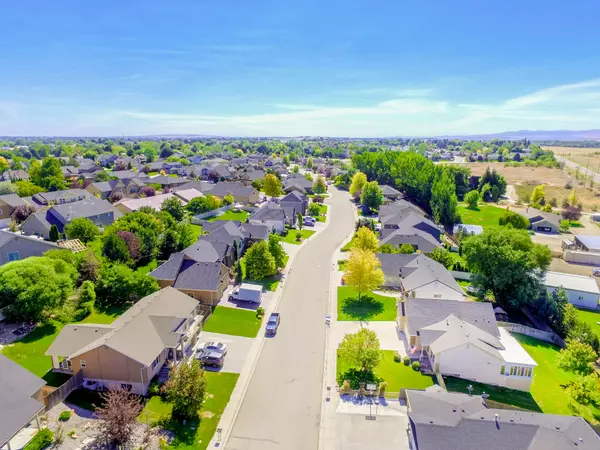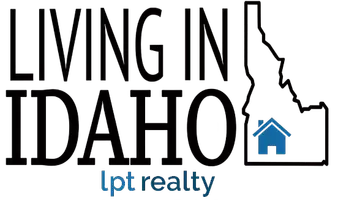How to Time Your Listing to Sell Fast

How to Time Your Listing to Sell Fast
Selling a property is not just about setting the right price and staging it well; timing plays a crucial role in how quickly your home sells. Listing your property at the optimal time can attract more potential buyers, increase competition, and ultimately lead to a faster sale. This article will guide you through the factors to consider when timing your listing to ensure a swift and successful sale.
Understanding Market Cycles
Seasonal Trends
Real estate markets often experience seasonal fluctuations. Traditionally, spring is considered the peak season for home sales. Warmer weather, longer days, and the end of the school year make it an ideal time for families to move. Listing your home in early spring can increase visibility and attract more buyers.

Advantages of Spring Listings:
Increased Buyer Activity:Â Increased buyer activity means more potential buyers are actively searching for homes, creating a competitive environment that often drives up demand and leads to faster sales. During peak seasons, like spring, low interest rates, refinancing options, and favorable mortgage conditions bring more buyers into the market. Real estate agents capitalize on this demand surge with strategic digital marketing, high-quality photography, and platforms like the MLS to increase visibility. Using analytics and data insights, agents refine pricing and marketing strategies to attract serious buyers, while tools like virtual tours and mobile apps enhance property appeal. Listing during high-demand times can lead to higher offers, faster closings, and better returns, making timing essential for selling quickly and effectively.
Better Home Presentation:Â A well-timed listing can enhance your home's presentation, especially in seasons like spring when gardens and landscapes are at their best. Vibrant greenery, blooming flowers, and well-maintained lawns add significant curb appeal, attracting buyers who can visualize the property's full potential. Real estate agents often emphasize these natural aesthetic advantages through professional photography and virtual tours, leveraging platforms like the MLS to showcase the home's appeal. This improved presentation can increase buyer interest, shorten time on the market, and even drive higher offers, making the season a key factor in maximizing the impact of your listing.
Higher Sale Prices: Higher sale prices often result from increased demand, creating competition among buyers that can lead to multiple offers above the list price. This competitive environment, often observed during peak selling seasons, allows real estate agents to strategically use marketing tactics like search engine optimization, email campaigns, and social media to reach motivated buyers. Agents may leverage platforms like the Multiple Listing Service (MLS), online marketplaces, and even mobile apps to showcase a property’s features, aided by professional real estate photography and virtual tours that enhance its digital presence. Such exposure attracts a larger pool of potential buyers, increasing the likelihood of competitive offers. To maximize sale price, agents often advise sellers on strategic pricing, curb appeal, and property improvements like home inspections and updates, which can add value to a home. For sellers, capitalizing on increased buyer demand can mean faster sales, higher profits, and potential savings on holding costs. Platforms like Rocket Mortgage and financial resources from sites like Bankrate offer tools to help buyers manage mortgage rates, loan options, and refinancing, making higher-priced properties accessible and fueling buyer activity. For agents and sellers alike, understanding timing and demand can lead to higher offers and a successful, profitable sale.
Economic Factors
Staying informed about broader economic conditions is crucial for understanding the real estate market’s dynamics. Key factors such as interest rates, inventory levels, employment rates, and inflation directly influence buyer demand, property prices, and, ultimately, how quickly homes sell. For instance, when interest rates are low, mortgage affordability increases, making it easier for buyers to obtain financing for homes. Monitoring tools like Bankrate provide insights into interest rate trends, helping sellers and real estate agents strategically plan listing times to capture high buyer demand. Similarly, low housing inventory in a market often creates a seller’s advantage, driving prices up as buyers compete for limited properties. Understanding these economic signals can be essential in determining the best time to list a house, potentially leading to quicker sales and higher profits. The National Association of Realtors and other professional real estate organizations frequently publish data on these economic indicators, offering valuable information for agents and sellers aiming to stay competitive.
Beyond interest rates and inventory, other factors such as employment rates and consumer confidence significantly affect the real estate market. A strong job market boosts home affordability and lowers risk, as buyers feel more financially secure and are more likely to qualify for loans. Sellers can leverage this by working with real estate agents who stay updated on these trends and employ strategies such as targeted email marketing, digital advertising, and search engine optimization to reach financially prepared buyers. Additionally, keeping an eye on inflation and tax policies, including capital gains tax and property tax changes, can impact home-selling profits and net income, influencing when and how sellers choose to list. Understanding the broader economic landscape allows sellers to plan for potential risks and opportunities in real estate, such as refinancing options, down payment requirements, or cash offers from cash home buyers. These economic insights help sellers set realistic list prices, ensure productive negotiations, and align with real estate market trends, creating a more informed and profitable selling experience.
Interest Rates:Â
Lower interest rates can encourage more buyers to enter the market.
Employment Rates:Â
A strong job market boosts consumer confidence.
Housing Inventory:Â
Limited supply can create a seller's market, leading to quicker sales.
Monitoring these factors can help you choose a listing time when buyers are most active and financially ready.
Best Times to List Your Property

Early in the Week
Listing your home early in the week, particularly on a Monday or Tuesday, can significantly boost visibility and attract more potential buyers, as most people begin planning their weekend viewings during this time. By aligning with this schedule, real estate agents can maximize the impact of digital marketing strategies, including email campaigns, social media, and search engine optimization, to drive early-week traffic. Featuring the property on platforms like the Multiple Listing Service (MLS) and leveraging tools such as virtual tours and aerial photography enhances the listing’s online appeal, helping to attract interest from serious buyers. Real estate agents often recommend scheduling professional home inspections and preparing for inquiries related to home insurance and mortgage details early in the process to streamline the transaction and reduce potential hurdles. Additionally, tools like Bankrate and Rocket Mortgage can be useful for buyers assessing financing options, while for sellers, considering capital gains tax and property tax implications can improve financial planning. Listing at the start of the week also provides an edge in a competitive market, as it captures the attention of buyers who might otherwise get distracted by new listings posted later in the week. For homeowners looking to sell their house fast, this strategy, combined with effective real estate marketing and a well-set list price, can make a notable difference in attracting early offers and expediting the sales process.
Consider Holidays
Avoid listing your property during major holidays when potential buyers are likely to be preoccupied. Conversely, some sellers find success listing just after the holidays when buyers resume their search.
Local Market Considerations

Real estate is inherently local, meaning that trends and demand can vary significantly from one area to another. To make the most informed decisions, it’s crucial to analyze specific market conditions in your region, including factors like local inventory levels, average home prices, and recent sales trends. Researching comparable properties, or "comps," in your neighborhood can provide insights into the list prices and selling times that might apply to your own home. Additionally, working with a knowledgeable real estate agent who understands the nuances of your local market can help you strategically time your listing for optimal exposure and buyer interest. By understanding your unique market conditions, you can set a competitive price, choose the best time to sell, and ultimately increase your chances of a successful, fast sale.
Local Sales Data:Â
Reviewing recent sales in your area is essential for identifying market trends that can impact your home’s sale price and timing. By analyzing comparable properties, or "comps," in your neighborhood, you gain insight into current list prices, average time on market, and how much homes are actually selling for relative to their initial price. This local data, often available through the Multiple Listing Service (MLS) or platforms like ATTOM Data Solutions, helps you understand buyer demand, inventory levels, and seasonal patterns in your area. With this information, you and your real estate agent can set a realistic list price, position your home competitively, and decide on the best time to sell. These insights ultimately increase your chances of a fast sale and maximize your home’s profitability.
Neighborhood Dynamics:Â
New developments or changes in local amenities, such as new shopping centers, parks, or improved public transit, can significantly boost buyer interest in a neighborhood. These enhancements increase curb appeal and convenience, often resulting in higher property values and attracting more competitive offers, especially when paired with effective advertising and search engine optimization strategies. Real estate agents leverage tools like the Multiple Listing Service (MLS), social media, and email marketing to highlight these local benefits, making homes more appealing and helping sellers secure faster, higher-value sales.
Weather Conditions:Â
In regions with extreme weather, certain seasons can be less favorable for showings, as harsh conditions like heavy snow, intense heat, or heavy rains may deter buyers from viewing properties. Real estate agents often adjust their marketing strategies, focusing on virtual tours, high-quality photography, and digital listings to maintain interest during these off-peak times. Highlighting features like durable roofing, efficient insulation, or storm-resistant windows can appeal to buyers looking for weather-resilient homes, ultimately helping sellers maintain buyer interest even when in-person showings are less feasible.
Consulting with a local real estate expert can provide valuable insights into the best timing for your area.
Pre-Listing Preparations

Timing isn’t just about the broader real estate market; it’s also about ensuring your home is in top shape to make the best impression on potential buyers. Preparing your home thoroughly before listing it can have a significant impact on attracting interest and securing higher offers. This includes everything from completing essential repairs and upgrades, such as refreshing paint, updating appliances, or improving curb appeal, to staging the interior so buyers can envision themselves in the space. Professional home staging and photography can enhance online listings and virtual tours, creating a more compelling first impression. Scheduling a pre-listing home inspection can also uncover and address any hidden issues, giving buyers added confidence in the property. By aligning these preparations with an optimal listing time, you maximize your chances for a quick and profitable sale.
Home Improvements
Completing any necessary repairs or upgrades before listing your home can significantly boost its appeal and shorten the time it spends on the market. A move-in-ready home is particularly attractive to buyers, as it saves them the hassle and expense of immediate renovations or repairs. Addressing items such as leaky faucets, chipped paint, or outdated fixtures can enhance the home’s overall presentation and increase buyer confidence. Real estate agents often highlight these updates in listings, using professional photography and virtual tours to showcase the property’s move-in-ready condition. Homes in top condition can often command higher offers and may even receive multiple bids, ultimately leading to a quicker, smoother sale process with fewer negotiations over repairs or contingencies.
Professional Staging
Staging your home is a powerful way to highlight its best features and create an inviting atmosphere that appeals to a wide range of buyers. By arranging furniture and decor thoughtfully, a professional stager can emphasize spaces, showcase functionality, and enhance the overall look of each room. This approach boosts curb appeal and makes the home’s online presentation stand out, especially in virtual tours and listings on the Multiple Listing Service (MLS) and other online marketplaces. Many real estate agents integrate staging into their marketing strategy, using professional photography to capture the home's appeal and engage potential buyers browsing on mobile apps or the internet. The investment in staging can be minimal compared to the potential increase in sales price or the speed of the sale, helping attract offers from cash buyers, those with strong financing, and those looking to move quickly. In today’s competitive market, effective staging can lead to faster offers, a smoother transaction, and ultimately, a more profitable sale for the homeowner.

Quality Photography
Invest in high-quality photos for your listing. Homes with professional photography receive more views and showings.
Pricing Strategy
Setting the right price is absolutely essential for a quick sale, as it directly impacts buyer interest, competitiveness, and the overall marketing strategy. A well-researched, competitive list price attracts attention and encourages more showings, particularly when highlighted on digital platforms like the Multiple Listing Service (MLS) and major online marketplaces. Real estate agents often utilize pricing tools like automated valuation models (AVMs), as well as analytics from companies like ATTOM Data Solutions, to understand fair market value, recent sales, and inventory levels in the area. This analysis helps set a realistic price point that reflects both the local market and broader economic conditions. By avoiding the risks associated with overpricing, such as the need for price reductions or extended time on the market, sellers create a sense of urgency among buyers, which can lead to faster offers and smoother negotiations. Effective pricing strategies can also reduce potential complications in the escrow process, as homes priced correctly are more likely to appraise accurately, minimizing the risk of contract issues or buyer financing challenges.
Furthermore, pricing plays a major role in how buyers perceive a property’s value, impacting everything from online click-through rates to the types of offers received. Real estate agents often work closely with sellers to develop a pricing strategy that aligns with their financial goals, considering factors like property taxes, mortgage balances, and potential capital gains tax implications for high-value sales. A correctly priced property stands out not only on traditional platforms but also in targeted digital marketing efforts, such as social media campaigns, email marketing, and virtual tours, all aimed at increasing exposure to serious buyers. For sellers opting for “for sale by owner†or seeking cash offers, setting a fair price can further attract cash home buyers and investors who can close quickly, offering a simpler path to a successful sale. The right price is ultimately a balance, reflecting both the unique qualities of the property and the demand in the local real estate market, making it one of the most critical elements in achieving a fast, profitable transaction.
Competitive Pricing:Â
Researching comparable homes, or "comps," in your area is crucial for setting a fair and competitive price that aligns with current market trends. Real estate agents often use tools like automated valuation models (AVMs) and data from the Multiple Listing Service (MLS) to analyze recent sales, listing prices, and property details, ensuring the home’s price reflects true market value.
Pricing Below Market Value:Â
In some cases, pricing slightly below market value can attract multiple offers, potentially driving up the final sale price.
Be Open to Negotiation:Â
Flexibility in negotiations—whether in price adjustments, closing timelines, or covering a portion of fees—can significantly enhance buyer interest and lead to a faster closing. Real estate agents often advise sellers to consider offering incentives, such as covering part of the home inspection costs or assisting with closing costs, as these concessions can appeal to buyers managing tight budgets, mortgages, or loan constraints, ultimately resulting in a smoother transaction and quicker sale.
Marketing Strategy
Effective marketing is essential for ensuring your listing reaches the right buyers quickly and generates interest that can lead to faster offers and a smoother sale. Real estate agents use a range of digital and traditional marketing strategies, from professional real estate photography and aerial shots to enhance curb appeal, to social media campaigns, email marketing, and listings on popular online marketplaces. With the aid of the Multiple Listing Service (MLS) and tools like automated valuation models (AVMs), agents can target buyers more precisely, tailoring the presentation to attract serious prospects. Platforms like mobile apps and social media allow agents to quickly and widely share your property’s features, while tools like virtual tours offer an immersive experience for potential buyers from anywhere. This comprehensive approach helps capture the attention of buyers who may otherwise overlook the property, ultimately leading to a faster sale.
In addition, smart marketing highlights the home’s value by showcasing attractive elements such as recent home improvements, competitive pricing, and flexible terms that may interest buyers dealing with tight budgets, mortgage constraints, or specific financing options like cash offers. To further boost appeal, agents may offer incentives related to home insurance, covering specific fees, or even creating options for contract flexibility, making the property more attractive in a competitive market. Featuring the home’s financial benefits, such as its potential for real estate investing or its strong resale value, is also an effective strategy to appeal to investors and cash home buyers. For homeowners aiming to "sell your home" or "sell your house" fast, such strategic marketing efforts are key to growing interest, creating urgency, and leading to quicker, more profitable sales, even in challenging economic times.
Online Presence
Most buyers start their search online. Ensure your listing is featured on major real estate websites with engaging descriptions and visuals.
Social Media Promotion
Leverage social media platforms to increase visibility. Share your listing in local community groups and real estate forums.
Open Houses
Hosting an open house can generate buzz and allow multiple buyers to view the property simultaneously.
Working with Professionals
Choose the Right Real Estate Agent
An experienced agent understands market dynamics and can advise on the best time to list. They also have networks to promote your property effectively.
Legal and Financial Advisors
Ensure all legal documents are prepared, and you understand the financial implications of selling, including taxes and fees.
Conclusion
Timing your listing to sell fast involves a combination of market awareness, strategic planning, and professional execution. By understanding seasonal trends, preparing your home meticulously, setting the right price, and employing effective marketing strategies, you increase your chances of a quick and successful sale. Always consider consulting with real estate professionals who can provide personalized advice based on your specific circumstances.
Final Tips:
- Monitor the local market regularly.
- Be flexible and ready to adjust your strategy.
- Keep communication open with your real estate agent.
By taking these steps, you'll be well on your way to selling your home quickly and efficiently.
Categories
Recent Posts










Leave a Reply

